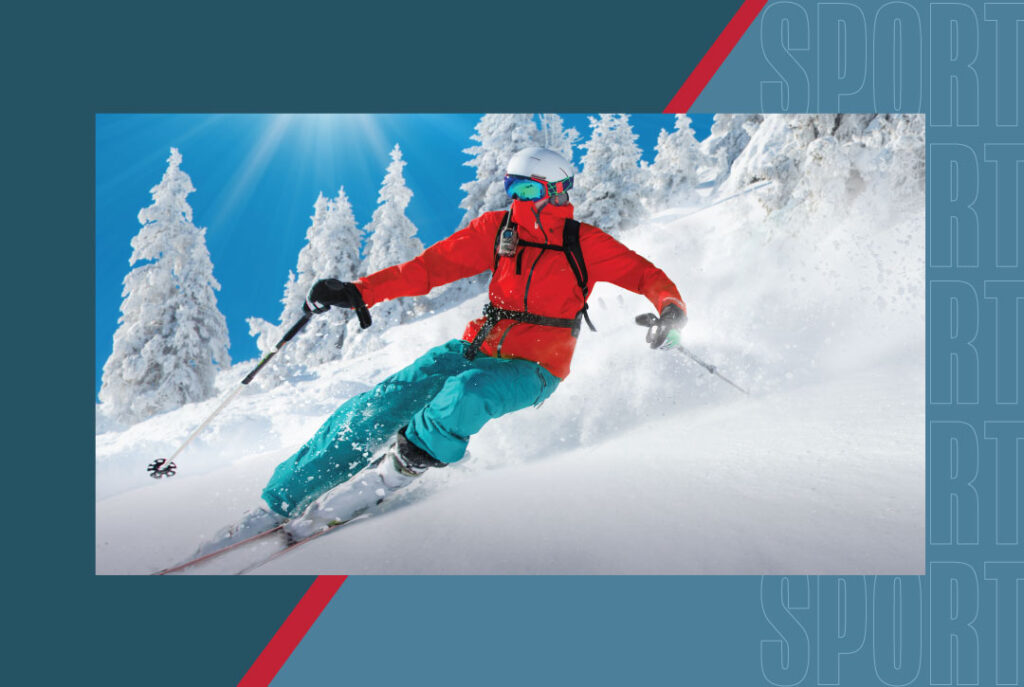Leadership Starts with Listening
When Sport Leaders Listen, They Create Opportunities for Understanding, Connection, and Culture Change in Sport.

By Ju’Riese Colón
CEO, U.S. Center for SafeSport

Leaders in sport at the highest level set standards and make key decisions that have impacts beyond the boardroom. But if sport leaders aren’t in touch with those they’re leading, policies and standards can only do so much.
Effective leadership depends on active listening. Sport executives who listen to stakeholders are in a better position to understand their experiences in and around sport. Only then can we begin to understand where our efforts are needed most, what change needs to occur to positively impact sport, and how to bring about this change.
And who are the most critical stakeholders of all? Athletes.
When we dedicate time and attention to listen to and understand the experiences of athletes, we can recognize opportunities to improve their well-being—and we can better understand where to direct our energy to help athletes at every level fulfill their potential.
The culture of sport is changing for the better thanks to the bravery of athletes sharing their stories, which has put a new focus on well-being. The U.S. Center for SafeSport is helping to propel this culture shift through education and accountability, but sport leaders in the industry play a pivotal role in maintaining this momentum, making respect and athlete-first practices the rule, not the exception.
Impactful voices, insightful data.
In 2024, the U.S. Center for SafeSport partnered with an independent research firm to conduct our second national Athlete Culture & Climate Survey. The purpose was to gain a better understanding of the experiences of athletes, particularly when it comes to emotional, physical, and sexual abuse in sport.
We heard from nearly 4,000 athletes, from both within the U.S. Olympic & Paralympic Movement and beyond it. Here’s what we learned:
- 72% of athletes strongly agreed that that their athletic experience has had a positive impact on their life.
- 62% of athletes felt that equal treatment occurred frequently or very frequently in their sport.
- Nearly 4 in 5 athletes (78.4%) shared that they had experienced behaviors related to emotional harm and neglect during their sports involvement.
- Over one-third (36.3%) of athletes have received unwanted sexual comments or looks during their sports involvement.
- Nearly 11% (10.9%) of athletes indicated that they had experienced unwanted sexual contact or sexually explicit behaviors during their sports involvement.
- 43% of athletes who experienced unwanted sexual behavior indicated that at least one instance occurred before they were 18.
- 89% of athletes who experienced unwanted sexual behavior during their sports involvement did not submit a formal complaint or report.
The results show that a majority of those surveyed felt sport had a positive impact on their lives. That’s what all athletes deserve, but the survey results also show it’s not what many athletes experience. This data can help inform organizational leaders at the top of sport as they attempt to do their own part in making sport culture safer for the athletes of today and tomorrow.
Actions speak.
Changing culture throughout sport and championing athlete well-being has been driving the U.S. Center for SafeSport’s work since we opened our doors in 2017. An independent nonprofit, SafeSport offers tools, trainings, and resources to help leaders in sport foster safer environments rooted in understanding, support, and respect.
Listening to athletes may be the first step, but the work doesn’t stop there. Instilling SafeSport® Training into your organization, promoting prevention education, and holding people accountable—while much more challenging, are actionable steps sport executives can take to ensure their organizations are places where athletes want to be, and where they can thrive.
By creating an environment where reporting misconduct and abuse is accepted and encouraged, sport leaders can help forge a new and necessary path.
Help change the culture of sport.
Most athletes (72.1%) who completed the 2024 Athlete Culture & Climate Survey strongly agreed that their athletic experience has had a positive impact on their life. The social, emotional, and physical benefits of sport can and should last a lifetime, and through listening and decisive action, sports business leaders can help make this the reality for athletes of all levels.
Learn more at uscenterforsafesport.org.
